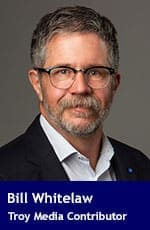 (This is the fourth in an occasional series profiling organizations committed to more productive energy talk.)
(This is the fourth in an occasional series profiling organizations committed to more productive energy talk.)
Monologue versus dialogue. Anyone trapped by the former truly appreciates the latter.
In Canada’s energy sector, we have a general penchant for monologue; that is, for more telling than listening. True dialogue is more the exception than the rule.
That has long puzzled Albertans Bob Taylor and Doug James.
They’re in the dialogue game – and they know it’s often difficult and challenging.
When they founded Energy Futures Network (EFN) a decade ago, the energy sector – particularly upstream oil and gas – was in a different place. Times were good and the issues that now burden the sector were considered more minor irritants. Energy proponents could afford to be more expository than explanatory and exploratory.
But Taylor and James knew that constructive and productive dialogue would be central to navigating future challenges.
Their first big effort was to draw together at Canada As A Responsible Energy Superpower, a diverse array of energy voices: the solar folks, the hydrocarbon crowd, the nuclear community, the wind folks, governments, non-governmental organizations, the coal sector and the hydro sector.
The objective was to focus on how Canada, using its abundant energy options could better serve an energy-starved world. It was a major undertaking, given that most energy sectors aren’t inclined to join conversations outside their comfort zones – or to create optics that suggest they’re sleeping with the enemy.
Ten years later, energy discussion is too often polarizing and paralyzing. Science and ideology go toe to toe. Consumer ignorance is celebrated. Politicians shout invectives at each other as energy projects devolve into trade wars. Investors have closed their wallets or taken their dollars to places with less risk and more predictability.
We’re regressing and progressive dialogue seems the stuff of dreams. Think of the headlines of our squabbling on climate change, pipelines and regulation.
We’re a country not of positive energy dialogues but of negative energy polemics: aggressive and hostile, but rarely productive or progressive.
But EFN has remained resolutely committed to constructive dialogue. Each month, members gather. Participants come and go but there’s a committed nucleus of people whose passion for good, and sometimes tough, talk has ensured EFN’s continued existence.
Someone presents on a topic, often designed to be provocative. That’s followed by constructive discussion. Defining or achieving an answer is not always a useful goal: “Sometimes,” note James and Taylor, “it’s really about getting the conversation to work more efficiently.”
It’s an informal process that works well because of two foundational principles: decorum and respect. There’s no shouting or table pounding, no pedantic or hectoring lectures; just good talk by talented and informed people looking to be even more well-informed. They acknowledge they don’t know what they don’t know.
The power and utility of EFN is in the relationships and contacts built.
Imagine, then, EFN chapters across Canada all pulling in the same direction.
Said James: “It’s all about generating dialogue … versus generating attention.”
EFN’s simple founding premise remains unchanged: using dialogue to push toward ample and affordable energy for all.
In the emotional tug and pull of current energy discourse, EFN is a calm alternative.
Perhaps if the two most western premiers had been invited to an EFN meeting, the recent cross-Rockies dynamic might have had a different outcome: a dialogue versus two-way monologue.
(To learn more about EFN and how to participate, contact administrator Liz Gandy at [email protected].)
Bill Whitelaw is president and CEO at JuneWarren-Nickle’s Energy Group.
Bill is a Troy Media Thought Leader. Why aren’t you?
The views, opinions and positions expressed by columnists and contributors are the author’s alone. They do not inherently or expressly reflect the views, opinions and/or positions of our publication.

